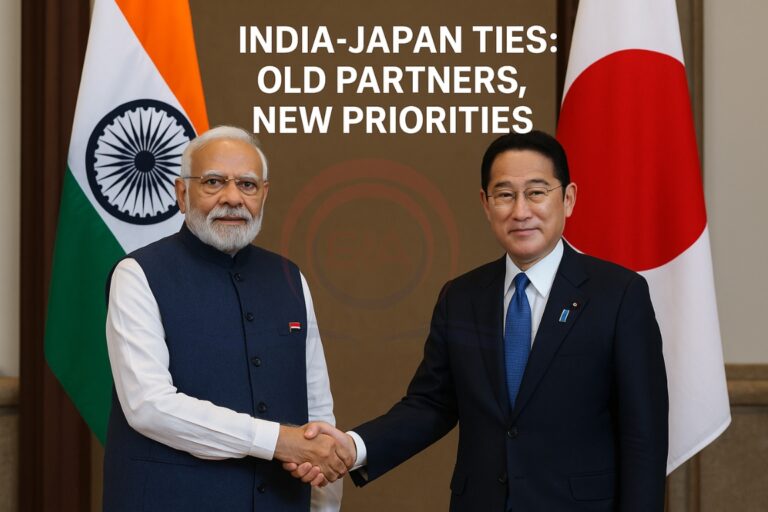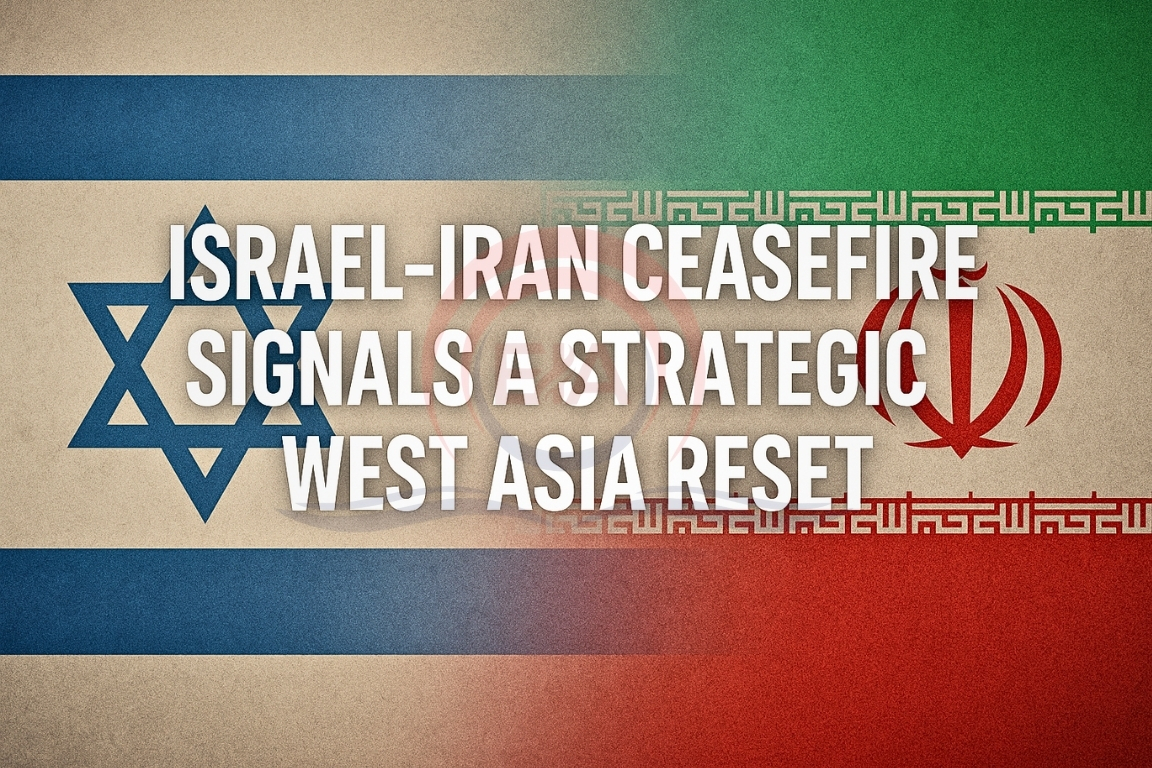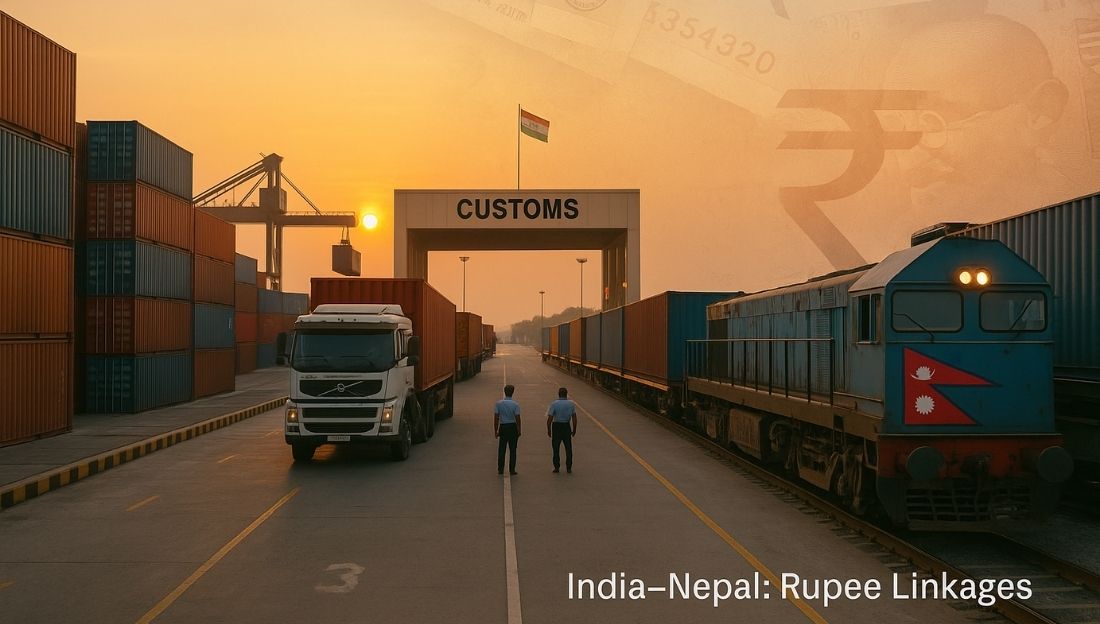Prime Minister Narendra Modi’s recent visit to Japan comes at a time of shifting global geopolitics. Japan announced a ¥10 trillion (approx. $68 billion) investment plan in India, while both sides are also looking to upgrade their defence, technology, and economic security cooperation.
Importance of Japan’s Investment Plan
- Japan pledged ¥10 trillion over 10 years to strengthen India’s infrastructure, clean energy, and technology sectors.
- This is one of the largest commitments Tokyo has made to New Delhi, showing long-term trust in India’s growth story.
- Japan is investing in the Mumbai–Ahmedabad bullet train project, demonstrating both technology transfer and economic collaboration.
- The plan also covers semiconductors, critical minerals, pharmaceuticals, and AI-driven digital cooperation.

Strategic and Security Dimensions
- India and Japan are set to revise their 2008 Joint Declaration on Security Cooperation to reflect current realities.
- A new Economic Security Initiative is being discussed, focusing on resilient supply chains and reducing dependence on China.
- Defence cooperation is likely to expand through maritime security collaboration, technology sharing, and Indo-Pacific stability efforts.
- Both nations emphasise a free, open, and rules-based Indo-Pacific, countering authoritarian influences.
Balancing China and the U.S. Factor
- Modi’s Japan visit is followed by his trip to China for the SCO Summit, signalling India’s ability to engage both a strategic partner (Japan) and a competitor (China).
- With Japan, focus remains on economic and security cooperation; with China, the effort is to manage tensions and explore confidence-building measures.
- The uncertainty of U.S. policy under Trump 2.0 has created doubts about Washington’s reliability.
- The Quad (India, Japan, Australia, U.S.) faces challenges due to uneven U.S. commitment, raising concerns for India and Japan about sustaining Indo-Pacific stability.
Broader Political Message
- Japan is emerging as India’s anchor partner in an uncertain global order.
- While China remains a competitor and the U.S. appears unpredictable, Japan offers consistency, resources, and a shared democratic vision.
- The visit signals India’s flexibility in foreign policy, maintaining balance without losing strategic clarity.
Conclusion:
India–Japan ties go beyond economics — they represent a strategic partnership for Indo-Pacific stability. At a time when U.S. commitment looks shaky and China’s trust deficit continues, Tokyo provides India with the most dependable and steady support. The visit reflects that the India–Japan partnership is not just about the past, but about shaping new priorities for the future.





